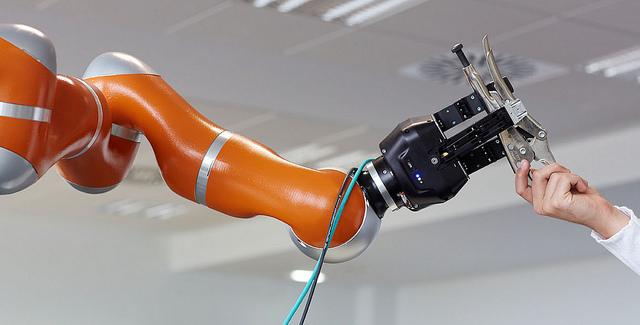Robots and other new workplace technology could create more than 133 million jobs worldwide, dwarfing the number of those they put at risk, according to a new report.
The World Economic Forum (WEF) says the advent of technology-driven automation will see about 75 million jobs disappear over the next decade with many more being created in the process.
Their findings come amid fears that the so-called ‘robot economy’ would destroy working life as we know it, hitting standards of living and raising inequality globally.
The reality, claims the WEF report, is that new technology will create many more new jobs than the ones it kills off and compares the transformation to that brought about by the Industrial Revolution.
Their conclusions were formed by a survey conducted by the organisers of the WEF’s annual Davos gathering of business and political leaders. Senior executives responsible for more than 15 million staff in 20 countries took part and although many warned that automation presented major challenges, the overwhelming conclusion was that the net result would be a positive one in terms of jobs.
This was not a ‘foregone conclusion’ however and WEF Chairman Klaus Schwab said investment in training and education would be essential to help the transition.
He said the report was “a call to action to governments, businesses, educators and individuals alike to take advantage of a rapidly closing window to create a new future of good work for all.”
Failure to do so would be a costly mistake as the executives interviewed believe that more than half of all current tasks at their firms will be carried out by machines within seven years. Staff in areas such as in accounting, data entry and payroll services are among those most at risk.
Here in the UK, more than 80 per cent of businesses said they would be seeking to automate many tasks by 2023 and 50 per cent said staff who lacked the skills to use the emerging technologies would face redundancy. Estimates of jobs at risk from automation in the UK vary from six million to 15 million.




